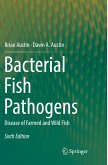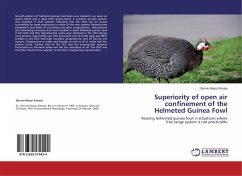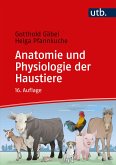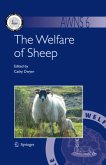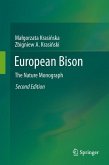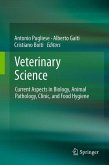This volume provides a multidisciplinary exploration of guinea fowl as a resilient and multifunctional species in modern livestock systems. Beyond its role in producing high-quality meat, guinea fowl serve as effective predators in controlling insect pests, particularly locusts, making them a valuable asset in sustainable agriculture.
Divided into eight chapters and written by specialists in veterinary science, biology, engineering, and food technology, the book covers:
The cultural and agricultural relevance of guinea fowl in contemporary farming
Morphological, behavioural, and predatory traits that support their ecological utility
Strategies for locust plague control through coordinated breeding and facility design
Reproductive management, including artificial insemination and daily operational protocols
Nutritional formulations for optimal growth and health
Disease identification, therapeutic interventions, and vaccination programmes
Engineering principles for farm infrastructure, machinery, and sanitation systems
Comprehensive analysis of meat quality, including its rich content of polyunsaturated fatty acids, biologically valuable proteins, and vitamins B1 and B12, as well as preservation and packaging techniques to maintain sanitary and sensory integrity.
This book is an essential reference for researchers, agricultural engineers, veterinarians, and food technologists aiming to optimise guinea fowl production while advancing ecological pest control and sustainable farming practices.
Divided into eight chapters and written by specialists in veterinary science, biology, engineering, and food technology, the book covers:
The cultural and agricultural relevance of guinea fowl in contemporary farming
Morphological, behavioural, and predatory traits that support their ecological utility
Strategies for locust plague control through coordinated breeding and facility design
Reproductive management, including artificial insemination and daily operational protocols
Nutritional formulations for optimal growth and health
Disease identification, therapeutic interventions, and vaccination programmes
Engineering principles for farm infrastructure, machinery, and sanitation systems
Comprehensive analysis of meat quality, including its rich content of polyunsaturated fatty acids, biologically valuable proteins, and vitamins B1 and B12, as well as preservation and packaging techniques to maintain sanitary and sensory integrity.
This book is an essential reference for researchers, agricultural engineers, veterinarians, and food technologists aiming to optimise guinea fowl production while advancing ecological pest control and sustainable farming practices.


